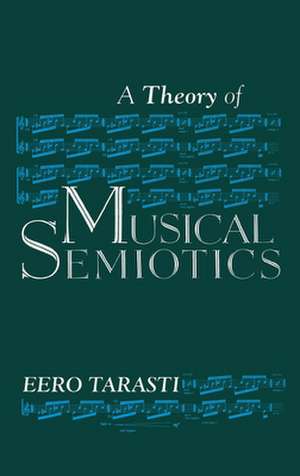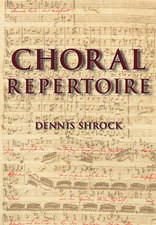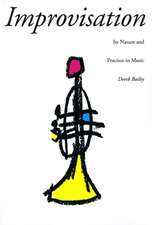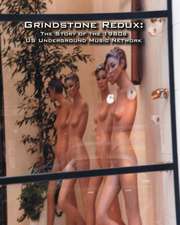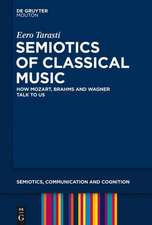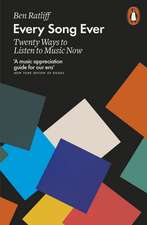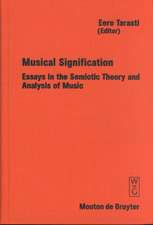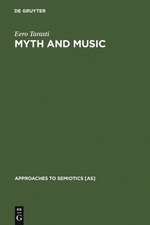A Theory of Musical Semiotics
Autor Eero Tarastien Limba Engleză Hardback – 21 dec 1994
Preț: 320.96 lei
Nou
Puncte Express: 481
Preț estimativ în valută:
61.42€ • 63.89$ • 50.71£
61.42€ • 63.89$ • 50.71£
Carte tipărită la comandă
Livrare economică 15-29 aprilie
Preluare comenzi: 021 569.72.76
Specificații
ISBN-13: 9780253356499
ISBN-10: 0253356490
Pagini: 352
Ilustrații: 4 b&w photos, 141 illustrations
Dimensiuni: 201 x 241 x 27 mm
Greutate: 0.62 kg
Ediția:Prescurtată
Editura: MH – Indiana University Press
ISBN-10: 0253356490
Pagini: 352
Ilustrații: 4 b&w photos, 141 illustrations
Dimensiuni: 201 x 241 x 27 mm
Greutate: 0.62 kg
Ediția:Prescurtată
Editura: MH – Indiana University Press
Cuprins
Foreword by Thomas A. Sebeok
Preface
Acknowledgements
Part One: Theoretical Background
I. In Search of a Theory
1.1 A Brief Critical History of Musical Semiotics
1.2 Reflections on the Logic of Musical Discourse
1.3 The Problem of Narrativity in Music
1.4 Toward the Definition of Modalities: Signs in Opera
1.5 On the Truth in Music
1.6 The Theory Itself in an Abridged Form
II. Musical Time
2.1 Music in Micro-Time: The Role of Memory
2.2 Music in Macro-Time: Music Models throught the Ages
III. Musical Space
IV. Musical Actors
4.1 Ernst Kurth as a Precursor of Musical Semiotics: Steps toward the Definition of Actoriality in Music
4.2 From Musical Subjects to Theme-Actors
Part Two: Analyses
V. Semiosis of the Classical Style: Beethoven's "Waldstein"
VI. Narrativity in Chopin
6.1 Polonaise-Fantaisie and the Idea of Narrative Program
6.2 Writing a Modal Grammar: Chopin's Ballade in G Minor
VII. Music and Literature
7.1 The Case of Obermann: Franz Liszt and Marie d'Agoult in Switzerland
7.2 "Apres un reve": A Semiotic Approach to the Study of Musical Performance
VIII. Music and Visual Arts: Pictures and Promenades¿A Peircean Excursion into the Semiosis of Musorgsky
IX. The Semiotics of Symphonism: A Deconstruction of National Meanings in Sibelius's Fourth Symphony
X. Toward the Modern Scene
10.1 Debussy's Impressionism in the Prelude "...La terrasse des audiences du clair de lune"
10.2 Minimalism and Anti-Narrativity
Conclusion
Appendix: "Apres un reve"
Glossary
Notes
Bibliography
Index
Preface
Acknowledgements
Part One: Theoretical Background
I. In Search of a Theory
1.1 A Brief Critical History of Musical Semiotics
1.2 Reflections on the Logic of Musical Discourse
1.3 The Problem of Narrativity in Music
1.4 Toward the Definition of Modalities: Signs in Opera
1.5 On the Truth in Music
1.6 The Theory Itself in an Abridged Form
II. Musical Time
2.1 Music in Micro-Time: The Role of Memory
2.2 Music in Macro-Time: Music Models throught the Ages
III. Musical Space
IV. Musical Actors
4.1 Ernst Kurth as a Precursor of Musical Semiotics: Steps toward the Definition of Actoriality in Music
4.2 From Musical Subjects to Theme-Actors
Part Two: Analyses
V. Semiosis of the Classical Style: Beethoven's "Waldstein"
VI. Narrativity in Chopin
6.1 Polonaise-Fantaisie and the Idea of Narrative Program
6.2 Writing a Modal Grammar: Chopin's Ballade in G Minor
VII. Music and Literature
7.1 The Case of Obermann: Franz Liszt and Marie d'Agoult in Switzerland
7.2 "Apres un reve": A Semiotic Approach to the Study of Musical Performance
VIII. Music and Visual Arts: Pictures and Promenades¿A Peircean Excursion into the Semiosis of Musorgsky
IX. The Semiotics of Symphonism: A Deconstruction of National Meanings in Sibelius's Fourth Symphony
X. Toward the Modern Scene
10.1 Debussy's Impressionism in the Prelude "...La terrasse des audiences du clair de lune"
10.2 Minimalism and Anti-Narrativity
Conclusion
Appendix: "Apres un reve"
Glossary
Notes
Bibliography
Index
